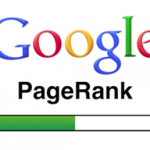Editor’s Note: Since this article was first written, Google has announced it will no longer make PageRank public. That doesn’t diminish the importance of PageRank; it just makes it more challenging. The details are here.
It may surprise some, but the first place a typical job seeker goes online isn’t a job board; it’s Google. Somewhere I read there are 100-300 million job-based queries a day on Google, so it makes sense to get your career content to appear more often when a job seeker is looking. Right?
Most recently, a sourcer showed me a landing page for a targeted job function. She wanted to improve visitor rates, which got us into a lengthy SEO (search engine optimization) discussion. The sourcer was pretty jazzed, so I thought it might be helpful to share what we talked about.
The definition of SEO is the art of manipulating search engine results. That’s all it is.
SEO is an art because it’s a constantly changing landscape. There are a lot of search engines, but Google is so far ahead that there’s no need to be concerned with Bing or DuckDuckGo. To make it difficult to manipulate the results, Google changes its SEO formula up to 600 times a year (more than once a day). The strategy is to get the average website to fork over “Pay Per Click” cash instead of figuring out how to stay up high on the search results pages or hiring an expensive SEO expert to do it. Google’s billions attest to the success of this approach.
The days of popping several key search terms on a site may be long gone, but don’t lose hope because there are steps even a sourcer can take. Let’s go back to the landing page example. As an HR tech guy, I’m focused more on web development than sourcing, but to me landing pages seem underutilized and can be a terrific way to build a prospect network. (Check out Inside Connecter for example.)
The Importance of PageRank
 To get your website or page to show up higher in the search results, you need to create a higher “PageRank.” There are two things that Google evaluates mostly as they rank your page for a search query. The first are the “backlinks” you have, and the second is how your page is optimized.
To get your website or page to show up higher in the search results, you need to create a higher “PageRank.” There are two things that Google evaluates mostly as they rank your page for a search query. The first are the “backlinks” you have, and the second is how your page is optimized.
Optimizing a landing page may be a bit over a sourcer’s head as it has to do with the “H1 title,” “H2 sub title,” semantics used, and the page schema – mostly web designer stuff. H1, H2, H3 etc., are the headers of your landing page, and you can help your landing page designer by providing them with words that a job seeker would use to find you. Be sure to include the key search term that someone will use to find your page. (A specific phrase is even better if there is one — something like “knock, knock jokes” instead of “Old Fashioned Humor.”)
Developing Backlinks
On the other hand, creating backlinks is something a sourcer can do to improve PageRank. The goal is convincing other career focused websites to include a link to your webpage. This is referred to as “link juice” and the more backlinks the more juice you’ll have. More importantly, authoritative and popular sites are the ones to get links from, as Google ranks their link juice higher. Getting SourceCon, TLNT, ERE, Carreerealism or similar quality sites to link to your page will certainly increase your PageRank.
Obviously it isn’t easy to get the most popular and authoritative sites to link back. I advised my landing page friend to create and rank a list of the 100 or so sites in her genre (MOZ and Ahrefs both rank sites by domain [URL] and page authority), and see if she knew any of the site owners. With 100 sites, there will be plenty of bloggers on her list who may be more approachable than a big association or company. Also, if she were to share their content and link to their site, they would be more apt to link back (quid pro quo). The bottom line is to get as many as you can from the highest ranked sites.
Link From Your Social Pages
There are other links any sourcer can create that will improve search engine results. Linking back from any major social site (Facebook, Instagram, Twitter, Pinterest, LinkedIn, etc.) also enhances PageRank. Ask your friends to do the same from their social feeds. In addition, continuously refresh your content on the page, and share it. The more you can be seen on your page as an authority of the subject matter, the more link juice you will get and the higher your SEO rank.
Pick different bloggers to target for links each month to grow your prospect network. This is starting to sound like sourcing — and it is — but instead of sourcing prospects, you’re sourcing authoritative and quality links!
There is no reason that a sourcer can’t manage SEO for a landing page, job post, blog post or any career page and improve the PageRank for it. What do you think is this something you can tackle? Let’s hear your thoughts.
(For extra credit: Load Google Analytics for your landing page and track your visitors, page views and include a form or “call to action” element and track click-through rates on how successful it is. Also, Google Analytics can alert to “nofollow links” and “disavow links” (bad links mostly from spammers).
